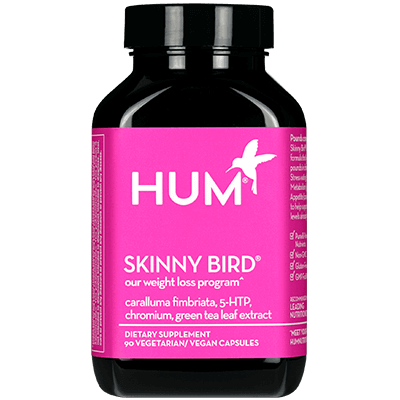Several factors contribute to weight and gain and obesity including genetics, overeating and lack of physical activity. Not getting enough sleep or enough quality sleep, may make you more susceptible to weight gain. Sleep deprivation can increase your appetite and cause hormonal imbalance. For example, recent studies have suggested an association between sleep duration and weight gain. The study showed that sleeping less than 5 hours or more than 9 hours a night seemed to increase the likelihood of weight gain. The amount of time sleeping may affect hormones regulating hunger such as ghrelin and leptin and stimulate appetitie. Another factor might be that lack of sleep leads to fatigue and results in less overall physical activity throughout the day.
The European Sleep Research Society suggests that sleep loss caused preschoolers to eat more calories both on the day of and the day after sleep restriction. This study showed that short sleep duration may contribute to childhood obesity risk. Another recent study from the American Journal of Clincal Nutrition showed that insomnia is associated with increased calorie intake, trans fat and sodium, lower intake of vegetables and overall poor diet quality.
The amount of time you sleep is important but so is the quality of your sleep. Disturbances of sleep and circadian rhythms in children and young adults are a risk factor for the development of lifelong obesity. Your circadian rhythm is your sleep/wake cycle. This is a natural, internal system that regulates feelings of wakefulness and sleepiness over a 24-hour period. If this cycle is disrupted it causes a misalignment. According to a study showing circadian misalignment, this has an adverse impact on energy balance and increases the risk of weight gain. This study showed that disturbances of the circadian variation along with composition of the gut micro biome, may be involved in the increased risk of obesity associated with insufficient sleep. Disruption of your circadian rhythm can come from external or internal sources. One internal source is the gut micro biome.
The gut micro biome has a proven impact on human brain health. Gut microbiota or flora is the name given to the microbe population living in our intestines. Your gut microbiota contains tens of trillions of microorganisms which include at least 1,000 different species of known bacteria with more than 3 millions genes. There are several ways the human gut micro biome impacts brain health. One such way is the gut microbes can produce hormones and neurotransmitters that are identical to those produced by humans. Bacterial receptors for these hormones influence microbial growth and virulence. Gut bacteria directy stimulate the nervous system to send signals to the brain. Through these mechanisms, gut microbes affect sleep and stress reactivity of the hypothalamic-pituitary-adrenal axis. They influence memory, mood, and cognition and are clinically and therapeutically relevant to a range of disorders, including alcoholism, chronic fatigue syndrome, fibromyalgia, and restless legs syndrome.
4 Easy Ways to Get Better Sleep and Prevent Weight Gain
These are not all the ways in which to get better sleep but are four simple ways to get you on the path to a better nights rest starting today.
1. Promote a Healthy Gut
A healthy gut begins with removing any toxins from your diet. Try to decrease or eliminate all together processed foods and alcohol. Other foods to avoid that may be stressors for many people are gluten, dairy and caffeine. Add to your diet unprocessed foods high in Omega-3 fatty acids, fiber from fruits and vegetables, zinc, vitamins A, C and E. Restore your guts natural bacteria with foods that contain probiotics. Probiotics are healthy bacteria that your gastrointestinal system needs in order to function properly and help fight illness. Fermented foods like kimchi, sauerkraut, kombucha, kefir, yogurt and tempeh all contain probiotics. You can also buy probiotic supplements but make sure to get a high quality one. You can email me for my favorites supplements at [email protected].
2. Go to sleep and wake up at the same time every day
In order to function optimally your body must have a regular sleep pattern and routine. Our circadian rhythm is influenced by the light/ dark levels, which then influence the amount of melatonin we produce. As stated previously, melatonin is the sleepiness hormone. You should try to stick to a good sleep/wake routine. Even on the weekends you should go to sleep and wake up at the same time as during the week.
3. Turn off All Blue Light Before Bed
Exposure to artificial light from your TV, cell phone and computers has been proven to elevate cortisol and suppress melatonin. At night, your cortisol levels should be lower relative to melatonin in order to produce sleepiness. Try shutting off all of your devices at least 60-90 minutes before bed. If you must use your phone or laptop before bed, get yourself an app that decreases the blue light. For your computers you can try f.lux which is also available for iPhone and for your phone Twilight is a great blue light filter for Android users.
4. Mindful Meditation
A small study from JAMA Internal Medicine suggests that mindfulness meditation (a mind calming practice that focuses on breathing and awareness of the present) can help one sleep better. Those in the study who practiced meditation and other exercises designed to help them focus on "moment-by-moment experiences, thoughts and emotions" had less insomnia, fatigue, and depression at the end of six sessions compared to the group that just learned ways to improve their sleep habits. These techniques promote increased relaxation and decrease stress related responses. Practicing mindful meditation involves focusing on your breathing and bringing your attention to the present moment. This allows you to clear your mind of stressful thoughts about the past and future. Ideally one would want to meditate daily for 20 minutes. A great way to start is with a guided mediation for 5 minutes and work your way to longer sessions. If you are unable to sit for longer than 5 minutes at a time, take 5 minutes two or three times a day to practice this. Here is a great website to get you started: Mindful.org.
Cheers to Your Health!











 RSS Feed
RSS Feed

